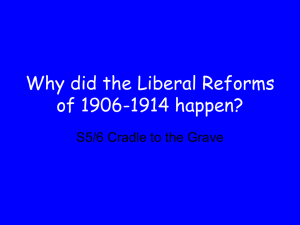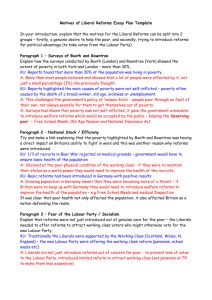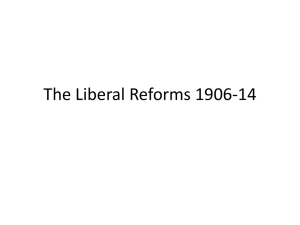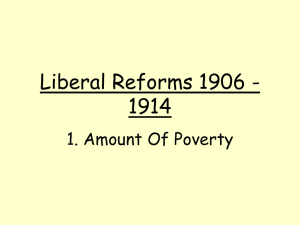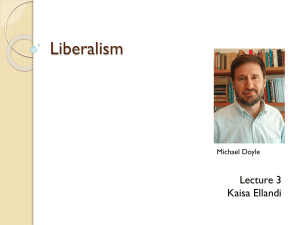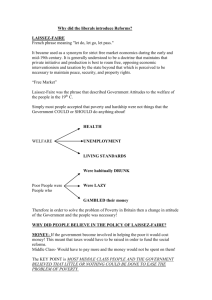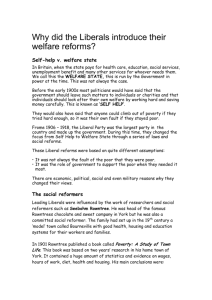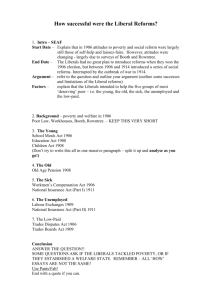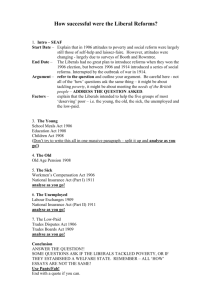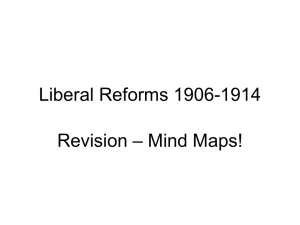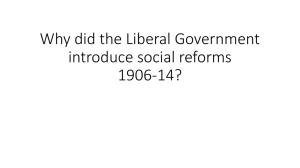Liberal Reforms: Causes & Motivations in Early 20th Century Britain
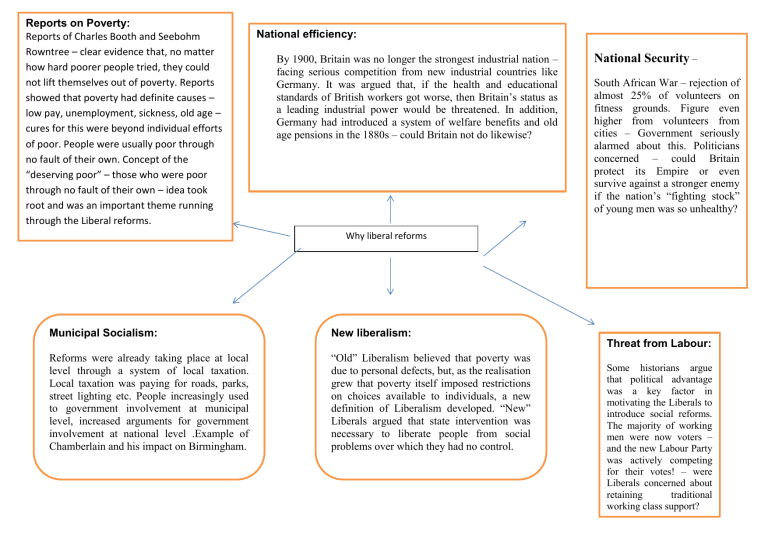
Reports on Poverty:
Rowntree – clear evidence that, no matter how hard poorer people tried, they could not lift themselves out of poverty. Reports showed that poverty had definite causes – low pay, unemployment, sickness, old age – cures for this were beyond individual efforts of poor. People were usually poor through no fault of their own. Concept of the
“deserving poor” – those who were poor through no fault of their own – idea took root and was an important theme running through the Liberal reforms.
National efficiency:
By 1900, Britain was no longer the strongest industrial nation – facing serious competition from new industrial countries like
Germany. It was argued that, if the health and educational standards of British workers got worse, then Britain’s status as a leading industrial power would be threatened. In addition,
Germany had introduced a system of welfare benefits and old age pensions in the 1880s – could Britain not do likewise?
Why liberal reforms
National Security
–
South African War – rejection of almost 25% of volunteers on fitness grounds. Figure even higher from volunteers from cities – Government seriously alarmed about this. Politicians concerned – could Britain protect its Empire or even survive against a stronger enemy if the nation’s “fighting stock” of young men was so unhealthy?
Municipal Socialism:
Reforms were already taking place at local level through a system of local taxation.
Local taxation was paying for roads, parks, street lighting etc. People increasingly used to government involvement at municipal level, increased arguments for government involvement at national level .Example of
Chamberlain and his impact on Birmingham.
New liberalism:
“Old” Liberalism believed that poverty was due to personal defects, but, as the realisation grew that poverty itself imposed restrictions on choices available to individuals, a new definition of Liberalism developed. “New”
Liberals argued that state intervention was necessary to liberate people from social problems over which they had no control.
Threat from Labour:
Some historians argue that political advantage was a key factor in motivating the Liberals to introduce social reforms.
The majority of working men were now voters – and the new Labour Party was actively competing for their votes! – were
Liberals concerned about retaining traditional working class support?
